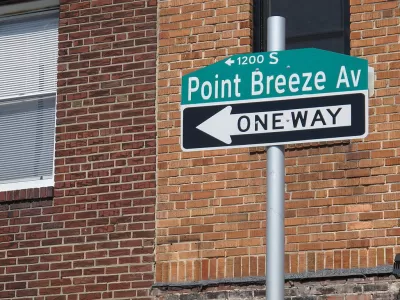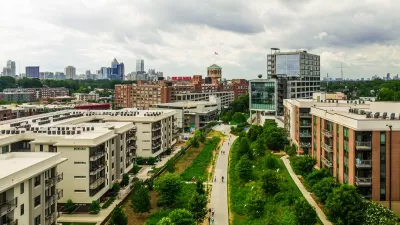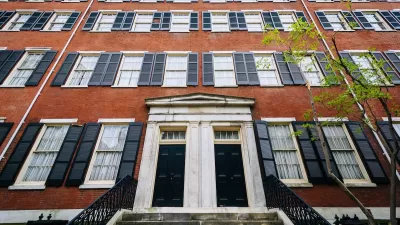A comprehensive national study finds that for many original residents of gentrifying neighborhoods, the effects of gentrification can have positive effects.

"A new study [pdf] released Tuesday by the Federal Reserve Bank of Philadelphia finds that the consequences of gentrification for original neighborhood residents are often better than they are typically perceived," reports Caitlin McCabe.
Authors are billing the new study as the first "comprehensive, national, causal evidence" into the effects of gentrification on longtime residents of neighborhoods.
"Specifically, the authors find that gentrification reduces 'original' adult residents’ exposure to neighborhood poverty, raises home values, and increases rent only for 'more-educated renters,' but not for 'less-educated' ones," according to McCabe. "Similarly, the study finds that children living in a neighborhood before it gentrified also are exposed less to neighborhood poverty and receive better opportunities for education and employment."
The study didn't just find benefits, also finding "that gentrification causes both less-educated renters and less-educated homeowners to leave a neighborhood at higher rates than they normally would during a typical 10- to 14-year period," according to McCabe.
Writing from Philadelphia, McCabe also presents an infographic from the study that maps the findings of the study specific to that city. Another infographic compares gentrification effects between American cities. According to that finding, Washington, D.C. has the most gentrifying effects of the major cities reported. Boston follows distantly with the second most gentrifying areas.
FULL STORY: Effects of gentrification on longtime residents are not as negative as typically perceived, Philly Fed says

Alabama: Trump Terminates Settlements for Black Communities Harmed By Raw Sewage
Trump deemed the landmark civil rights agreement “illegal DEI and environmental justice policy.”

Study: Maui’s Plan to Convert Vacation Rentals to Long-Term Housing Could Cause Nearly $1 Billion Economic Loss
The plan would reduce visitor accommodation by 25% resulting in 1,900 jobs lost.

Planetizen Federal Action Tracker
A weekly monitor of how Trump’s orders and actions are impacting planners and planning in America.

Waymo Gets Permission to Map SF’s Market Street
If allowed to operate on the traffic-restricted street, Waymo’s autonomous taxis would have a leg up over ride-hailing competitors — and counter the city’s efforts to grow bike and pedestrian on the thoroughfare.

Parklet Symposium Highlights the Success of Shared Spaces
Parklets got a boost during the Covid-19 pandemic, when the concept was translated to outdoor dining programs that offered restaurants a lifeline during the shutdown.

Federal Homelessness Agency Places Entire Staff on Leave
The U.S. Interagency Council on Homelessness is the only federal agency dedicated to preventing and ending homelessness.
Urban Design for Planners 1: Software Tools
This six-course series explores essential urban design concepts using open source software and equips planners with the tools they need to participate fully in the urban design process.
Planning for Universal Design
Learn the tools for implementing Universal Design in planning regulations.
Caltrans
Smith Gee Studio
Institute for Housing and Urban Development Studies (IHS)
City of Grandview
Harvard GSD Executive Education
Toledo-Lucas County Plan Commissions
Salt Lake City
NYU Wagner Graduate School of Public Service





























